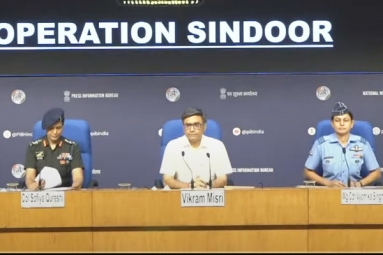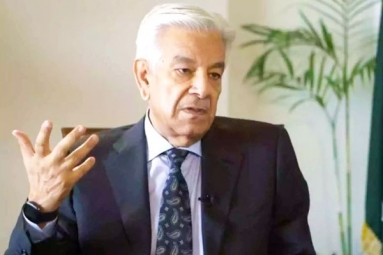
(Image source from: Is Greenpeace negatively impacting India's economic development})
Intelligence Bureau (IB) of India has accused Greenpeace that it's negatively impacting the country's economic development. But the environmental group said its mission in India was only to promote sustainable development of natural resources.
The main focus of Greenpeace in India was to persuade the government to adopt a 'sustainable energy-delivery system" in the country.
Abhishek Pratap, Greenpeace spokesperson defended the group's work saying that he had no information about IB criticising their work. The motto of the environmental group was to persuade the government about a need to adopt an energy delivery system that was sustainable in the country.
India relies heavily on coal-based electricity and is building more thermal powers, but it remains a fact that over 30 crore people in the country have no electricity, said Pratab. Apparently he was referring to a need to shift to other sources of energy like hydroelectricity, nuclear energy or the non-conventional sources of energy.
Recently the IB submitted a report to the government on how foreign-funded NGOs have been negatively impacting economic development in India. It highlighted that the environmental group had funded anti-nuclear agitations and also helped to raise agitation against India's coal-based power plants and coal mining activity.
However, Greenpeace spokesperson argues that the government has been ignoring ecological sustainability by going ahead with coal mining. He says that reckless mining activity has dislodged people from their homeland, which is a serious threat to ecological sustainability. Besides, such extensive mining also impacts the climate conditions.
Another allegation on Greenpeace was related to violation ofthe provisions of Foreign Contribution Act of 2010, and the group financing sympathetic studies at the Tata Institute of Social Sciences and IIT-Delhi. Pratap rubbished such reports saying that the group was never served any such notice.
The environmental group had outsourced a studies on health impact and water being diverted in the Vidarbha region to TISS and IIT-Bombay respectively. Pratab admitted that Greenpeace had funded the study on water being diverted from the Vidarbha region inspite of farmers struggling for water for their crops in the region.
Greenpeace has been reportedly renewing an international campaign to highlight that global standards on e-waste emissions were not being met by Indian IT/ITeS firms. This was vociferously rejected by Pratap, who said that the group had actually recommended EVS legislation for India.
The recommendation was adopted by the government and the EVS Management and Handling Rule of 2012 was enacted. Pratap went on to say that as an environmental group, Greenpeace had the right to ask companies whether they are following the rule. This was enquired from four Indian and 18 global companies, he added.
Greenpeace is a non-governmental environmental organization with offices in more than forty countries. Its goal is to help the Earth to nurture life in all its diversity. The campaigns are focused on world wide issues like global warming, deforestation, anti-nuclear issues, genetic engineering, overfishing and commercial whaling. Greenpeace activists rely on direct action, research and lobbying to achieve its goals. The environmental group has been controversial regarding its motives and methods. Greenpeace has also drawn criticism and the group's direct actions have even attracted legal actions against its activists.
(AW: Pratima Tigga)










